The next article for my main series on ‘The War for our Minds’, part Four, will be read tomorrow by Patrick Gunnels, in another exclusive preview (you can catch him on Twitch and Rumble), and will be published here the next morning.
But in between, I thought to brush up an older reflection I wrote last year.
I was travelling to Europe, and had time to kill in the airplane.
I ended up watching ‘The 800’, a Chinese movie that piqued my interest.
And as I was watching it, I couldn’t help but notice several things.
First, a few things about the movie itself.
After I returned home and could do some research, I learned that this movie was a long expected epic, depicting a heroic last stance against the Japanese during their invasion of China in 1937. It was cleared by the normal censor approvals, set to screen at the opening slot of the June 2019 Shanghai International Film Festival, China’s only A-list film festival (and providentially also the location where the events in the movie took place), but within 24 hours of the set screening time, it got cancelled.
One reason likely was that 2019 was the 70th anniversary of the Communist Party’s victory over the Nationalist Party of Chiang Kai-shek, and the fact that the troops in the movie were from Kai-Shek’s army. Oops.
Chian Kai-Shek
Now, with the way the Chinese movie industry is hit by Covid, they need ways to get people back to the theaters, and this epic they already had ready, was one way to draw people back. And, one could say, one underlying message from the movie was necessary, for propaganda reasons, given the new tensions with the US.
There are a few points to make, though, on China, Chinese thinking, their propaganda, etc.
But first, the history.
The story itself is really worth a closer look.
I am no expert on modern Chinese history, but I did read that it was the Nationalist armies of the Kuomintang who did a lot of the heavy lifting against the Japanese, where the Communists armies focused on preserving their strength for the next civil war. And where they hid behind ‘Chinese don’t fight Chinese’ when they got pummeled too hard by the Nationalists, stating they had to unite to fight the Japanese.
A bit like a certain party here likes to use ‘the need for bipartisanship’ whenever they are disadvantaged.
Either way, this time was a mess, with competing loyalties and support. The Nationalists, for example, both fought the Chinese Communist Party, while accepting support from the communists in Russia. (Which, prewar, might have cost them the support from the US, who feared too much Russian influence in China).
They even got support from Nazi Germany, who outfitted several units.
You’d easily be mistaken to think this picture is from Europe, somewhere in the 1940s, but it is in China, showing Chinese Nationalist troops, equipped and trained by German officers.
On July 7, 1937, Japan invaded China (again), coming down from the North, sweeping down, until the Japanese Imperial troops reached Shanghai on August, 13 that year. There, the Chinese managed to hold their ground, despite having inferior training and equipment, and no artillery and air support to speak of. On top, the Japanese had their navy for support, as well.
Part of the success of the Chinese resistance was in the fact that Shanghai had a section with Foreign Concessions, under extraterritorially and consular jurisdiction of the British, French, Italians and Americans, among others. This forced Japan to hold back, as they could not yet afford to enter into war with those nations.
The use of mustard gas, which they used in other parts of the city, was difficult: wind could blow it towards the Concessions, and start a major international incident. Using naval ships or planes for bombardment was also out, as even one miss could hit the Concessions, just across the river, and drag them into the fight.
As the Zhabei district of Shanghai was about to fall, Chiang Kai-Shek ordered to focus on the western regions of Shanghai, and to withdraw all forces from Zhabei, except the 88th Division, to buy time for the defense of the western parts, and to shore up international support by proving the Chinese were willing and able to fight back against the Japanese.
There was an international meeting of the 9 Powers, the countries that had signed an agreement affirming the sovereignty and territorial integrity of the Republic of China, including the United States, Belgium, China, France, Great Britain, Italy, Japan, the Netherlands, and Portugal. They were to meet in November 1937, and Chiang Kai-Shek hoped that this stubborn defense would help garner support from the countries of the 9 Powers (of course, besides Japan).
But neither the 9 Powers nor the League of nations would intervene. The Japanese were cautious not to involve the Russians in Manchuria, and in 1931, Herbert Hoover did not support intervention in the Manchurian Incident, as he held to the position that Japan was justified in not tolerating a half-Bolshevik China, a position that likely continued in 1937.
Still, the actions by the Chinese in Shihang Warehouse were nothing short of heroic, aided by the Chinese population in the Concessions, who sent aid, food, and news about Japanese movements and strategy they observed from their safe zone. And famously, the Flag of the Republic of China, sent to the soldiers by Girl Scout Yang Huimin (her story is also incredible!).
The thick walls of the bank building, and the sandbag fortifications, provided an impenetrable defense against the Japanese. And the sheer will of the defenders was also a factor: at some point one of the soldiers strapped several grenades around his body, and hurled himself down one of the walls, where the Japanese were attempting to plant a bomb to create a breach, and killed 20 of them, effectively stopping that attempt by his sacrifice.
When the Western concessions were getting afraid that the fighting would eventually spill over, and petitioned the Chinese to stop the fighting and withdraw, Chian Kang-Shek agreed, as he had achieved his goals: withdraw his troops, dig them in, and get international attention.
On midnight of November 1, 1937, the Chinese commander of the 524th Regiment of the 88th Division, Army Lieutenant Colonel Xie Jinyuan, retreated with 376 men, leaving behind 27 soldiers who were too wounded to move, and who would stay behind, manning machine guns to cover the retreat.
Lieutenant Colonel Xie Jinyuan
The name ‘800’ came from the false number the commander gave to a journalist, to mislead the Japanese, but this is the name under which they gained fame in China, restoring morale after a series of continued losses against the Japanese. Kind of like the Alamo, in the US.
Their story is told all over, and part of popular memory. But, it honors soldiers of the Kuomintang, the Chinese Nationalist movement, that was in a deadly struggle against the Chinese Communists.
Now, back to the movie.
The initial approval of this movie was gained, no doubt, for the attempts at stirring up national pride and commitment. Against international indifference, and against a clear enemy, the Chinese kept losing because they were weak in will, but the bravery of a few inspired even cowards and deserters and civilians to stand and fight! To the death! All for the glory of China.
It sort of tweaks history, however, by ignoring and underplaying the context and identity of the troops in this story. No Chiang Kang-Shek, no Kuomintang. Even the flag-raising event manages to be depicted with an incredible lack of focus on the flag.
A few points of propaganda: the movie shows many more Chinese killed than actually happened. Real numbers: 10 killed. In the movie, that is a whole lot more. And I mean, a whole lot.
In the movie, many more Chinese soldiers die in suicide attacks (they carried out themselves) than actually happened. I mentioned that one attack already, by Chen Shusheng, a 21-year old private from Platoon 2 Section 4 2IC.
In the movie, that is followed by a whole series of other soldiers who volunteer to die the same way, jumping to their selfless deaths under the tearful but proud eyes of the Chinese citizens watching from the safe zone.
This is in line, however, with a common tactic to use suicide squads, or the so-called "Dare to Die Corps", used with some effect to stop even tanks, in one event in Taierzhuang even 4 tanks. And I cannot escape the idea that this is ‘conditioning’: showing the Chinese that such martyrdom against the enemies of China is honorable.
If what certain commentators are saying is true, and I am not doubting them, the Chinese will launch indeed such suicide attacks. Or at least attacks that their leadership knows full well will come at great cost (a sacrifice they are willing to make). What better way to prepare the minds than by using such propaganda?
Another interesting tidbit is this: in the only personal chitchat between soldiers, one man talks to another and finds out his comrade is still a virgin, and does not know what a woman’s breast feels like. In that scene, he doesn’t want to know, either, in part because the first man asks for a pack of cigarettes in return. But in the end, both stay behind, ready to die, and then the conversation resumes.
As a quick aside, as background: In the one child policy in China, many girls have been aborted, as families want a male heir. Result: there are now millions of men more than women. Men who will never have a woman, will never get married, will never have a family. They have, literally, no future. Except the state, their country, communism. They can give their life for ‘that family’, the Party.As a result of the one child policy China had for the longest time, there is a very sizeable lack of women (they got aborted or killed on birth, as a male child was better for the family). For example, there are 9.5 million 25 year old males, but only 8.4 million 25 year old females. That is a 13% difference! 1.1 million 25 year olds do not have a potential spouse among their peers. And this is the same all along the ages, from 0 to 30 years, where the difference is at least 1 million more males (In the US that is 2.4 million males vs 2.3 million females of 25 years old, a difference of only 4%).
In the group of 18-30 year olds, that is a lack of over 12 million women. Studies place the number as high as 30 million. What will all those millions of men, unable to find a spouse, and thus having no future, do with their lives?
It really struck me, that scene, with that current situation in mind. Did they channel a present day reality/concern among their soldiers that is common and depicted it as a anachronism onto the WWII soldiers, attempting to give their present day men a ‘patriotic’ answer for their frustrations and hopelessness?
Let’s read from Chinese sources themselves.
The website from Beijing Tourism, visitbeijing.cn, wrote:
“The movie not only shows how those solders sacrificed themselves to defend the country, but also presents the transformation of citizens' attitude. "What makes this film different is that it doesn't merely praise the heroes who sacrifice their lives, but also shows how ordinary people can be influenced by their spirits and then choose to fight," one netizen wrote.”
A ‘netizen’. Yes, of course, we know about those ‘anonymous’ people who miraculously happen to say just the right thing.
It is ramping up a militant spirit, giving a reply to a question that hasn’t been asked (yet). And it is clear, calling that war the “War of Resistance Against Japanese Aggression in 1937”. Heroic language, aimed to inspire their own people to do the same, yet again. Providing the example to follow.
Or the scene with the flag-raising, showing how tens of soldiers died keeping the flag up, under withering fire from airplanes, when in reality the planes did come, but due to strong anti-aircraft fire and the close vicinity of the international concessions, did not dare do much, and went back quickly, inflicting no casualties.
(Flag raising scene from the movie. Notice the many heroic deaths, and the curiously cut off flag, not in view…)
Why show so many soldiers die in a heroic but pointless attempt to save the flag?
I could not shake that feeling I was watching pure propaganda, aimed at preparing Chinese minds for slaughter. The elements they changed from the real story aligned to that end. (This, too, in line with Part 3, is Cognitive Warfare: prepare your target population on not ‘what’ to think, but ‘how’, guided along empathy and patriotism, to think along the lines of sacrifice and glory.)
I have always been wary of China, from the perspective of their huge surplus of men, who have no goal in life past their own, as they cannot have a family of their own. How to channel that? I always somehow expected them to start a war, to use and channel the energy and lives of all those womanless (and thus, futureless) men.
In this movie, the message was very clear, how ‘courage and sacrifice’ was needed to save China. How that would require many lives, which the Chinese people and soldiers should be prepared for and willing to offer for the sake of their country.
I have seen several Chinese movies with what is clearly nationalist propaganda, but never this blatant.
In the article I referenced in Part 3, Controling Cognitive Domains, the author wrote:
”China has been buying shares in major film and production studios in the USA and UK for over a decade. The Chinese government purchased the AMC movie theatres while creating English media channels including 24/7 news worldwide.
Like the USA, China is using sexual subliminal and shock programming to distract, distort, divide and disable the American population while inserting Chinese figures, icons and “values” into scripts and screens.
Chinese owned studios and cinemas have already exerted censorship influence on major motion pictures including removing any Taiwanese, Japanese or Hong Kong symbols (new ‘Top Gun’ movie) and changing the nationality of the “enemy” figures (Red Dawn 2012) stirring up division using Hollywood to mix cultural icons erasing the “white man as hero” and encouraging confusion and polarization within ‘western’ societies. This is a textbook communist tactic.”
The Chinese movie industrie has surpassed Hollywood, so the Chinese have been much more aggressive, and placed a quota on the maximum amount of foreign movies could be shown inside of China, as well as ramping up demands for changes and censorship in movies (with the public apologies from US and Western companies, directors and stars when ‘mistakes’ are made).
John Cena, for example, around the release of F9 of the FAst and Furious franchise, made the ‘mistake’ of claiming that Taiwan was a country.
Pressure was such, that he was forced to air a public apology to China and the Chinese people… It is chilling, to listen to it, scripted A to Z by the Chinese, no doubt.
It underscores the importance of this medium, and the narrative, that needs to be protected by limiting foreign movies, and by meticulously protecting and managing the messaging that is put out.
And as Mrs. Munisteri pointed out in the above mentioned article: the Chinese are actively '“stirring up division using Hollywood to mix cultural icons erasing the “white man as hero””. We see this everywhere on TV, where British nobility and upper class, up to the queen, are full of non-white actors, at the same time that it is highly frowned upon for white actors to play any role that is not strictly European, even down to voice actors in cartoons. While that attempt to give preference to actors with the right ethnic background makes sense to me, where possible (though not as a dogma), the increased reversal of that when it comes to white history and people is simply baffling, and rank hypocrisy. But it is part of this strategy to sow dicord and division, as part of the war for our minds.
Stay tuned tomorrow for a more in depth look at many more examples of the war for our minds that is being waged.




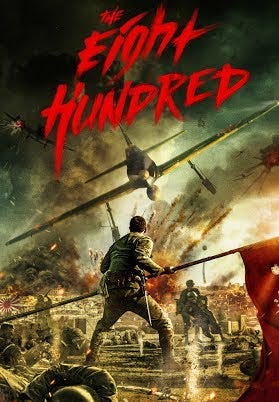
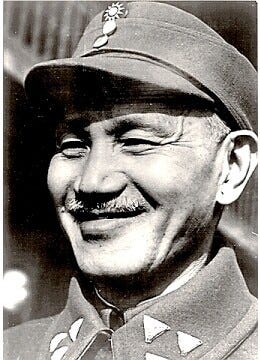
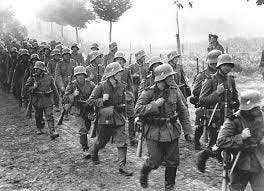
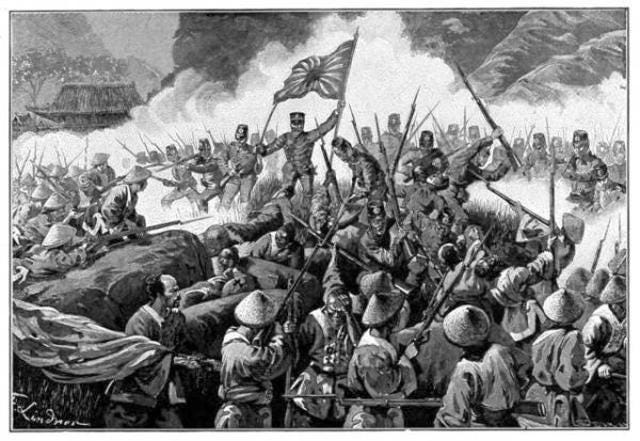
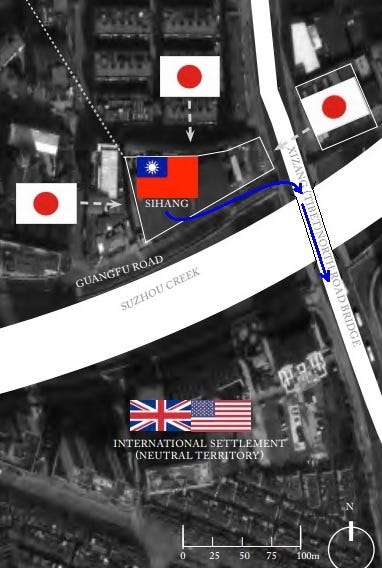

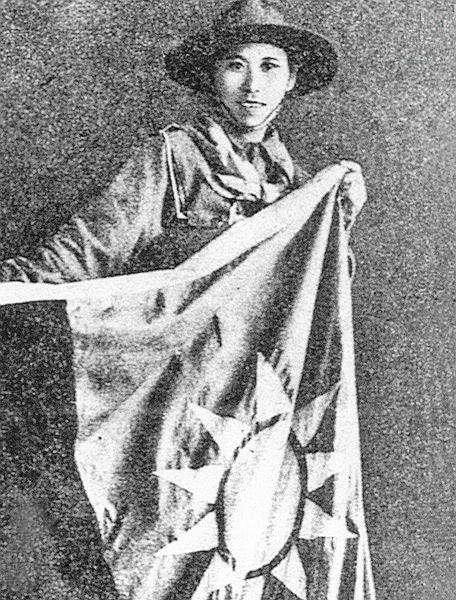
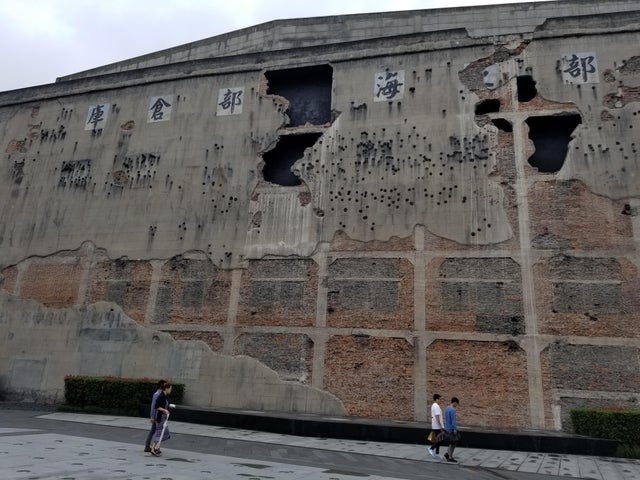
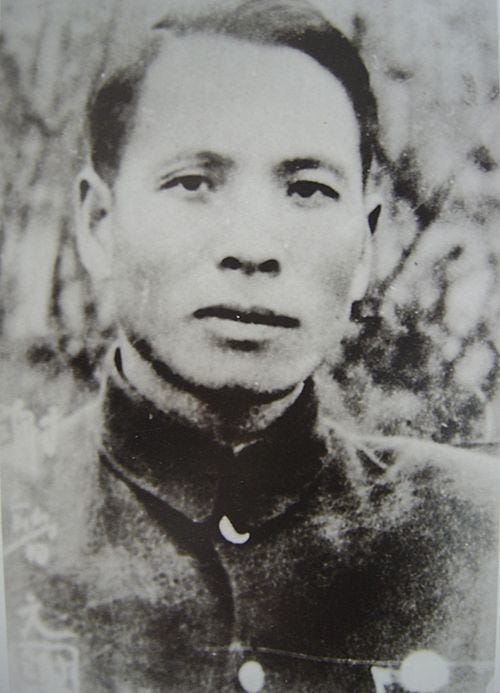
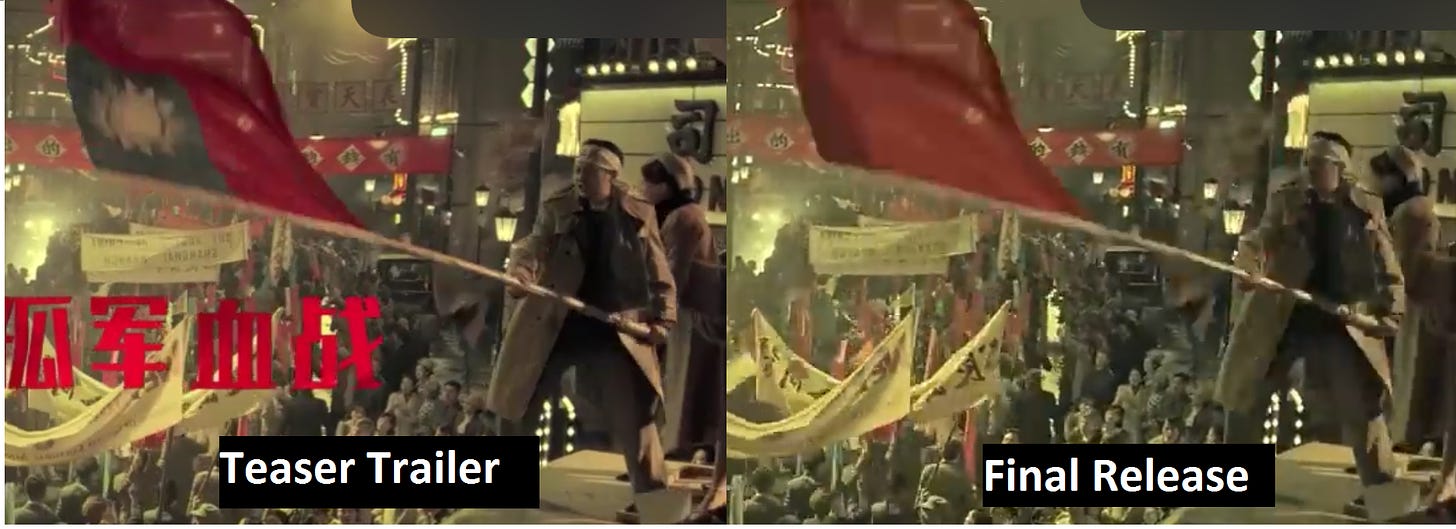
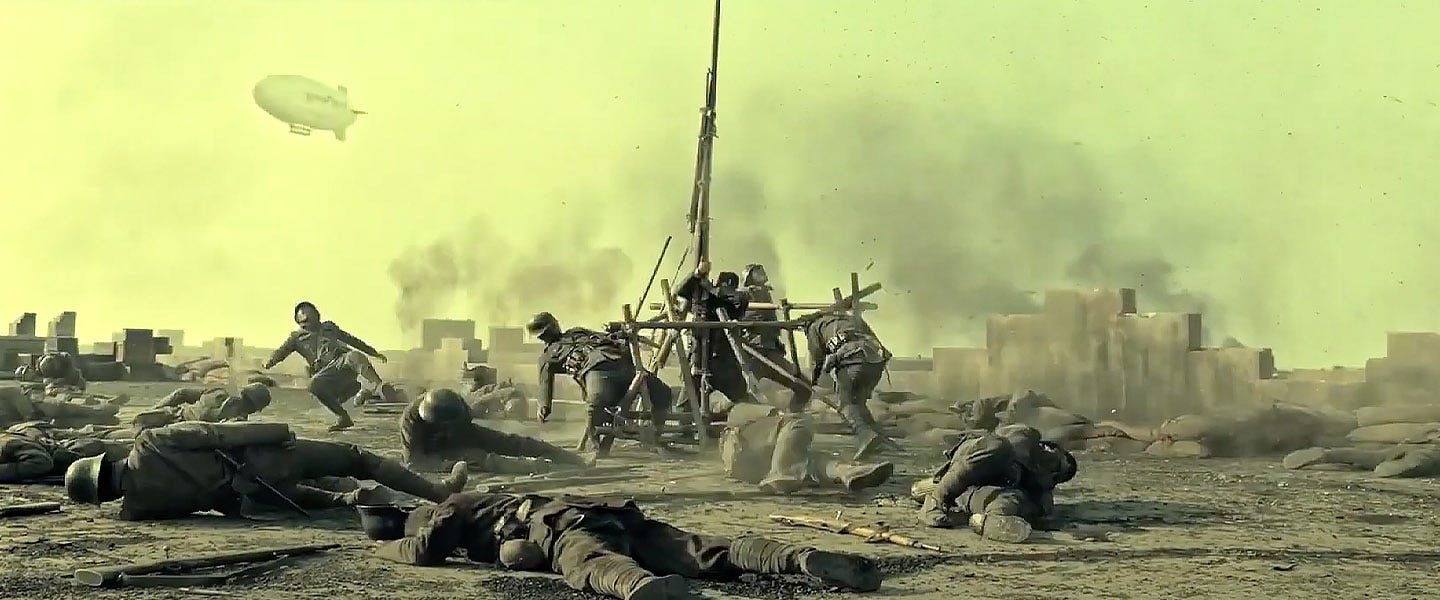
Great post, Arn. There is no doubt entertainment has always be a propaganda channel for the Deep State, CCP, and other bad actors. And since covid was unleashed along with 24/7 fear porn, it's been especially fertile. The escapism that affected so many drove millions to massively increase their movie and TV consumption. Combine Netflix with fear and a sizeable portion of people without jobs...Goebbels would have envied the reach. Looking forward to Pt 4 on Patrick Gunnels tonight
BTW - the John Cena clip is fascinatingly creepy. I missed this 'controversy' when it happened. This had to be word-for-word CCP scripted. Why did he even mention Tibet? And to say Taiwan is not a real place??